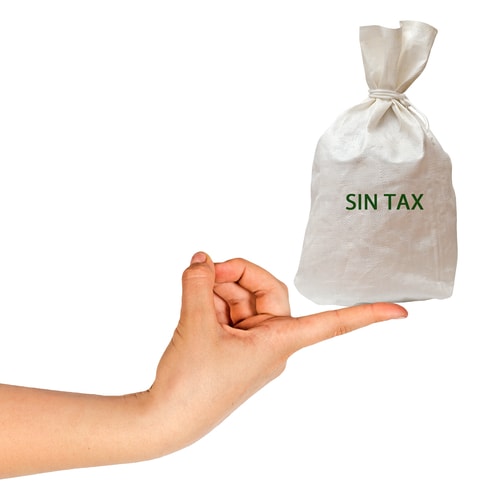Taxation of Cryptocurrency in India
 The rapid rise in cryptocurrencies worldwide has pushed regulators across the jurisdictions to deal with the tax and legal issues of virtual digital assets (VDAs). In India, even though cryptocurrencies are not yet accepted as legal tender, the legislative and fiscal stance has come a long way since the introduction of formal tax provisions in the Union Budget 2022. The existing framework prevailing for the Assessment Year (AY) 2025–26 (i.e., Financial Year 2024–25) levies a structured taxation regime on income from the transfer, sale, or use of VDAs, including cryptocurrencies and non-fungible tokens (NFTs). This article analyzes the salient statutory provisions, compliance, and the practical implications of the Indian tax law on cryptocurrency transactions.
The rapid rise in cryptocurrencies worldwide has pushed regulators across the jurisdictions to deal with the tax and legal issues of virtual digital assets (VDAs). In India, even though cryptocurrencies are not yet accepted as legal tender, the legislative and fiscal stance has come a long way since the introduction of formal tax provisions in the Union Budget 2022. The existing framework prevailing for the Assessment Year (AY) 2025–26 (i.e., Financial Year 2024–25) levies a structured taxation regime on income from the transfer, sale, or use of VDAs, including cryptocurrencies and non-fungible tokens (NFTs). This article analyzes the salient statutory provisions, compliance, and the practical implications of the Indian tax law on cryptocurrency transactions.
Legal Definition and Scope of Virtual Digital Assets (VDAs)
The Income Tax Act, 1961, was modified by the Finance Act, 2022, to include Section 2(47A) defining a "Virtual Digital Asset" as:
"Any information, code, number, or token (not being Indian currency or foreign currency), generated by means of cryptography or otherwise, and having a digital representation of value, which is exchanged with or without consideration."
The legal definition now explicitly includes the following as Virtual Digital Assets (VDAs):
i. Gift vouchers and cards redeemable for goods or services;
ii. Mileage points, reward points, and loyalty programs;
iii. Subscriptions to websites or digital platforms.
This clarification brings cryptocurrency transactions under the purview of the Income Tax Department, even though the Reserve Bank of India (RBI) continues to exclude such assets from being recognized as legal tender.
Key Provisions Governing Cryptocurrency Taxation:
- Section 115BBH
Tax on Income from VDAs Introduced via the Finance Act, 2022, Section 115BBH sets out the following taxation rules:
- A flat tax rate of 30% on income arising from the transfer of any VDA;
- No deductions allowed for any expenditure except the cost of acquisition;
- Losses from VDA transfers cannot be offset against any other income;
- Such losses also cannot be carried forward to subsequent financial years.
This 30% tax rate applies uniformly, irrespective of the holding duration or whether the VDA is held as an investment or as trading stock.
- Section 194S
TDS on VDA Transfers Effective from 1 July 2022, this provision mandates a 1% Tax Deducted at Source (TDS) on payments made to residents for the transfer of VDAs.
 Threshold Limits:
Threshold Limits:
- ₹50,000 a year in the case of individuals or HUFs not required to be subjected to tax audit;
- ₹10,000 a year in all other cases.
- Non-deduction or non-deposit of TDS leads to payment of interest and penalty under Sections 201 and 271C respectively.
Taxable Events in Cryptocurrency Transactions
The taxation liability under Section 115BBH arises on "transfer" of the VDA, which includes the following:
- Sale of cryptocurrency for INR or foreign currency;
- Exchange of one crypto asset for another (crypto-to-crypto transactions);
- Using cryptocurrency to buy goods or services;
- Receiving cryptocurrency as salary, fees, or business income;
- Receiving cryptocurrency through mining, airdrops, or staking;
- Transfer of cryptocurrency as a gift, where not exempt.
The above activities are considered to be either business income or capital gains, as per the frequency and nature of transactions.
Tax Treatment of Particular Crypto Transactions
- Trading and Investment
- Gains on trading VDAs, both short-term and long-term, are liable for 30% tax.
- No indexation allowance or brokerages, electricity, wallet fee, etc., deductions are allowed.
Gains are calculated as:
Sale Consideration – Acquisition Cost = Taxable Income
- Crypto-to-Crypto Transactions
Treated as two distinct taxable events:
- Disposal of current VDA;
- Acquisition of fresh VDA.
- Value of new VDA is taken as sale consideration for the old one.
- Mining and Staking
Cryptocurrencies received by mining or staking are taxed on receipt, depending on their fair market value (FMV). The FMV is treated as cost of acquisition when the asset is ultimately sold.
- Airdrops
Airdropped tokens are to be taxed as income from other sources at FMV on receipt. On later sale, gains are calculated as difference between sale price and FMV.
Gift of Crypto Assets
Gifts of cryptocurrency above ₹50,000 in value are taxable in the hands of the recipient unless:
- Received from a "relative" as defined under Section 56(2)(x);
- Received on marriage;
- Received under a will or by way of inheritance.
Taxability of Crypto Business Activities
Where the main business of an assessee is trading or dealing in cryptocurrencies (e.g., exchanges, brokers, miners), income is categorised under "Profits and Gains from Business or Profession". Nevertheless, even then, Section 115BBH overrides other sections, and business expenditure cannot be deducted from taxable income emanating due to VDA transfer.
Losses on VDAs
An important restriction brought about by Section 115BBH is the bar on adjusting losses:
- Loss from the transfer of one VDA cannot be set off against income from another VDA;
- Losses cannot be adjusted against income from any other head (e.g., salary, property, capital gains);
- Losses cannot be carried forward to future years.
This restrictive accounting exacerbates the financial burden on retail investors and traders who are confronted with market declines.
Reporting Requirements in Income Tax Returns
For AY 2023–24 and later, the Income Tax Return (ITR) forms have been amended to provide for Schedule VDA, with exhaustive disclosures being necessary:
- Nature of VDA;
- Date of acquisition and date of transfer;
- Consideration received and cost of acquisition;
- Mode of acquisition;
TDS deducted, if any;
Income offered under Section 115BBH.
Non-reporting or incorrect reporting can attract penal action under Section 270A (penalty for under-reporting) and Section 271J (penalty for defective certification).
 GST Implications
GST Implications
Though the Income Tax law has dealt with crypto taxation, clarity under the Goods and Services Tax (GST) regime continues to evolve. Important points are:
- Crypto exchanges can be expected to pay 18% GST on their service charges;
- Minning can be considered as a taxable supply liable to reverse charge;
- Supply of VDAs themselves can attract GST if considered as goods or services.
- The Central Board of Indirect Taxes and Customs (CBIC) shall issue more precise guidelines to prevent dual taxation or interpretational confusion.
Practical Compliance Considerations
Given the growing complexity and number of VDA transactions, taxpayers are cautioned to keep precise records, such as:
- Purchasing and selling dates and amounts;
- Wallet addresses and hashes of transactions;
- Screenshots or confirmations of airdrop or mining receipt;
- FMV on date of receipt and disposal;
- Exchange or platform utilized.
In addition, a few third-party utilities such as KoinX, ClearTax Crypto, and CoinTracker can facilitate automation of tax calculation and preparation of TDS reports, particularly for active traders.
Judicial and Regulatory Angle
Although the existing income tax provisions are all-encompassing in nature, judicial interpretation on some contentious issues is pending:
- Whether the 30% rate of tax is constitutionally tenable in spite of the fact that there is no deduction allowed;
- The determination of cryptocurrencies as "goods," "securities," or "services" for purposes of indirect tax laws;
- The taxation of foreign exchange gains or losses on crypto transactions in cross-border transactions.
In addition, the absence of harmonized global regulation for cryptocurrencies raises the risk of double taxation or unequal compliance requirements.
Conclusion
India's taxation system for cryptocurrencies displays a conservative yet systematic approach by the legislature. Although the addition of Section 115BBH and Section 194S has provided clarity and regularization to crypto taxation, it has also added rigorous conditions, particularly with regard to disallowing losses and expenses. Taxpayers need to take a proactive stance in maintaining transaction-level accounting, fulfilling TDS requirements, and reporting VDA income in their annual return. As digital assets continue to evolve, further legislative refinement and perhaps even a specific Virtual Digital Assets Regulation Act might be forthcoming to complement the current tax provisions.
 English
English
 عربي
عربي Русский
Русский 官话
官话 português
português
 Türk
Türk 







